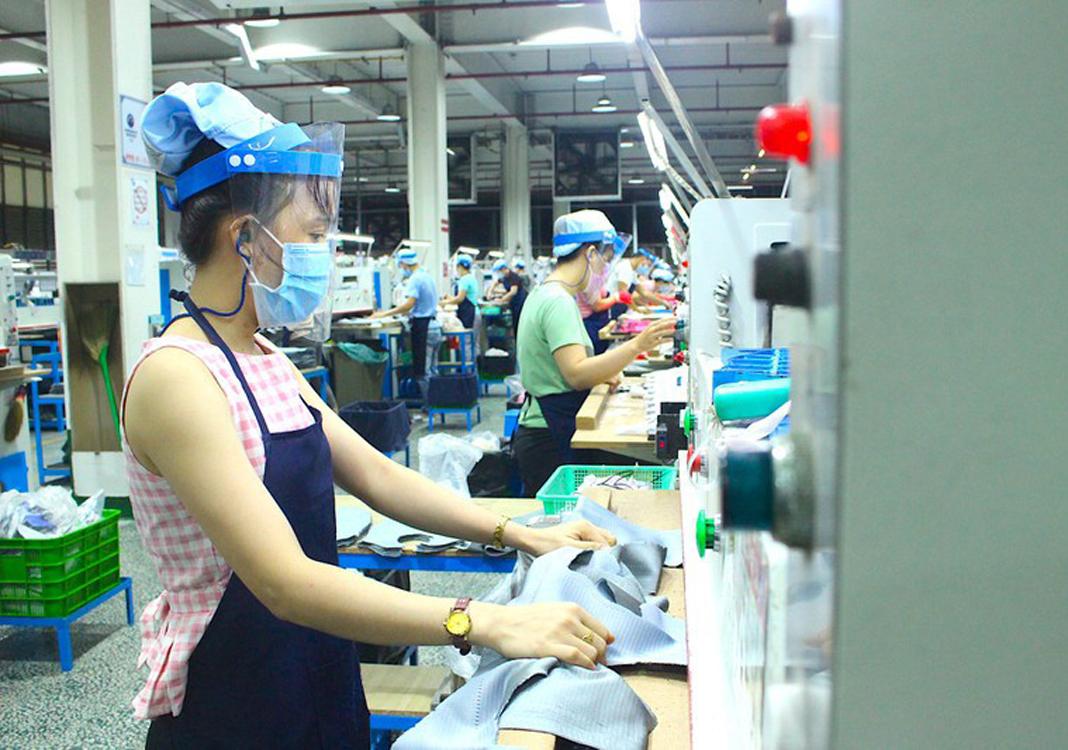HCMC – An escalation in Covid-19 cases and deaths in July-August will undermine Vietnam’s previously strong recovery from the pandemic shock and may temporarily set back the positive rating momentum, said Fitch Ratings.
Fitch Ratings economists affirmed Vietnam’s rating at “BB” in April 2021 and revised the Outlook to Positive from Stable following the resilience of the country’s growth and public finances to the pandemic shock at that time.
The Vietnamese authorities had succeeded in keeping the number of Covid-19 cases low prior to the latest outbreak. The economy expanded by 5.6% year-on-year in the first half of 2021, accelerating from 2.2% in the first half of 2020.
However, over 95% of Vietnam’s cumulative Covid-19 cases occurred after June 30, 2021, forcing a large part of the country into a lockdown, which was endured only briefly in 2020.
Therefore, restrictions to curb the spread of the disease will weigh on activity in the third quarter of this year and could persist if the outbreak is not brought under control, according to Fitch Ratings.
“This poses significant risks to our current forecast that growth will average 6% in 2021. However, we still expect Vietnam’s gross domestic product (GDP) performance over 2020-2021 to be the strongest among Fitch-rated sovereigns in the ASEAN,” said economists.
They added that some lost growth momentum may be made up in subsequent quarters as output and social activity normalize, although the risk of further outbreaks will linger as Vietnam’s vaccination rates remain low.
Public finances will also be affected. Government officials have indicated plans for a relief package worth roughly US$5 billion (around 1.4% of GDP), focused on reducing taxes and fees for small and medium enterprises (SMEs).
“However, we expect Vietnam’s public debt/GDP ratio to remain well below the median for ‘BB’ sovereigns in 2021-2022,” said economists.
Exports have been an important support for Vietnam’s economy during the crisis. The tourism sector’s share of GDP fell to 3.5% in 2020 from 9.3% in 2019, and Fitch Ratings economists believe tourism earnings will remain at very depressed levels well into 2022 as a result of the pandemic.
However, goods exports have been strong, with merchandise exports rising by 26.2% year-on-year between January and July this year.
Economists cited anecdotal evidence as saying that some factories producing exports have been disrupted by the recent outbreak, but they expect the impact on output to be temporary.
One risk to exports appears to have been resolved in July when the United States announced a deal had been reached over Vietnam’s exchange-rate policies.
“We had expected the Biden administration to downplay currency tensions with trade partners in Asia, but argued that Vietnam was among the most exposed to macroeconomic risks if the US opted to escalate the matter,” said economists.
They said if the agreement results in the appreciation of the local currency, this could pave the way for faster growth in per capita GDP in U.S. dollar terms. “When we affirmed Vietnam’s rating in April, we said sustained high growth that reduces the GDP per capita gap vis-à-vis Vietnam’s peers while maintaining macroeconomic stability could lead to a sovereign rating upgrade.”
Nonetheless, it is not clear whether market forces will put upward pressure on the Vietnamese dong in the near term. Strong import growth in recent months has already reversed the record trade surplus in 2020; in the second quarter of 2021, Vietnam posted its largest quarterly goods trade deficit since 2011.
A loosening of the credit policy designed to cushion the impact of the pandemic may have been one of the factors supporting import growth. Financial system credit rose by 15.2% year-on-year in the first half of 2021, faster than the nominal GDP growth of 6.7%.
“We expect this trend to be sustained in 2H21 as the authorities guide banks toward lower lending rates and accept faster system credit growth,” said Fitch Ratings economists.
They said in April that a material reduction in risks posed to the sovereign balance sheet from weaknesses in the banking sector could be a trigger for a sovereign rating upgrade. However, the adverse effects of the recent Covid-19 outbreak could reduce the likelihood of this, at least in the near term.
By Thanh Thom









